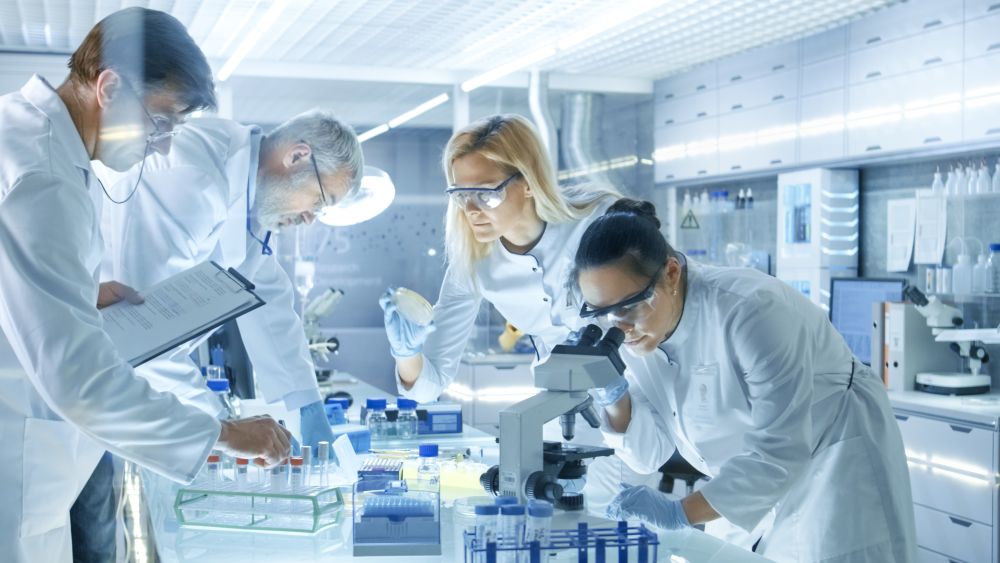[vc_row][vc_column][vc_column_text]“The outcomes of this research promise to provide new insights into the genetics of what determines the development and progression of Parkinson’s disease, “said Professor Deniz Kirik, Faculty of Medicine, Lund University who will be the lead investigator on the research project for the University of Sydney as an Honorary Professor for the duration of the research.
ASAP seeks to support international, multidisciplinary, multi-institutional research teams to address key knowledge gaps in the basic disease mechanisms that contribute to Parkinson’s. The initiative is focused on understanding the dynamics of Parkinson’s from its earliest stages and before it presents as a fully-recognisable condition.
The research being funded is focused on how mutations and/or deletions in specific genes result in a high probability of developing Parkinson’s disease (PD), suggesting their critical role in the health and survival of specific brain cells.
“Curiously, it is not yet clear how specific types of brain cells are functionally impacted by genetic mutations that result in the neuronal loss defining Parkinson’s. The research supported by this grant will address that,” said Professor Kirik.
Previously, affected cells have mainly been examined as cultured cells in petri dishes but this project will focus on using cells from patients with Parkinson’s to study them in the environment of the living mouse brain. This is a completely new way of exploring the cellular components and underlying biology of the disease. The researchers will then explore how gene editing could address the underlying basis of the disease.
“This generous grant allows Professor Kirik to build new research capabilities in neuronal transplantation at the University of Sydney, and collaborate on genomics and human neural stem cells with myself and Professor Carolyn Sue from the Kolling Institute,” said Professor
Glenda Halliday, one of the lead researchers from the University of Sydney’s Faculty of Medicine and Health and member of the University’s Brain and Mind Centre.
“It will also build on Professor Kirik’s strong collaborations with Professor Claire Parish and Associate Professor Lachlan Thompson at the Florey Institute in Melbourne, and Jennifer Johnson at NysnBio in California.”
Professor Sue, Executive Director, Professor and Director of Neurogenetics, Kolling Institute, University of Sydney said: “We have world- leading expertise in this field and have been selected to take part after a worldwide search for innovative programs to speed up the search for new treatments for Parkinson’s disease. The program illustrates the importance of our translational research at the Kolling Institute, where we can directly incorporate scientific breakthroughs to improve clinical care for our patients.”
The research team members are:
Project lead: Professor Deniz Kirik, Faculty of Medicine Lund University, Sweden, has over 25 years’ experience in the development of cell and gene therapy for treatment of neurodegenerative diseases, with special emphasis on Parkinson’s disease. He has made significant contributions to cell therapy for PD which have been instrumental in taking novel treatments into clinical testing. (Professor Kirik and his team will eventually be based at the University of Sydney for the duration of the research, once COVID conditions permit).
Core leadership and Collaborators:
Professor Glenda Halliday,NHMRC Senior Leadership Fellow, Faculty of Medicine and Health and Brain and Mind Centre, University of Sydney. Expertise in the development of neurodegenerative disorders including Parkinson’s disease and the role of Lewy bodies (clumps of proteins that form in the brain). Her current work focuses on how proteins identified through genetic studies are involved in neurodegeneration.
Professor Carolyn Sue, Executive Director, Professor and Director of Neurogenetics, Kolling Institute, University of Sydney and Director of Neurogenetics at Royal North Shore Hospital, University of Sydney. A clinician-scientist, whose research team combines the use of genomics, molecular neuroscience, and adult stem cell models to identify pathogenic mechanisms and develop targeted therapies for Parkinson’s disease and other related neurodegenerative disorders.
Professor Clare Parish, The Florey Institute of Neuroscience and Mental Health, Victoria is a developmental neuroscientist with 20 years of experience in Parkinson’s disease research. Expertise includes using advanced stem cell-based therapies for neural repair in Parkinson’s disease. She has an international reputation in improving the safety and functional integration of stem cell-derived neural transplants for Parkinson’s disease.
Associate Professor Lachlan Thompson, The Florey Institute of Neuroscience and Mental Health is a neurobiologist specialising in neural transplantation both as a therapeutic approach for brain and spinal cord repair, and as a way to understand the properties of neurons generated from human stem cells. He is the inaugural co-chair of the Asia-Pacific Association for Neural Transplantation and Repair.
Jennifer Johnston, CEO NysnoBio, California, has been studying neurodegenerative disease for the last 20 years. NysnoBio is a biotech company focused on the modulation of the parkin enzyme pathway for critical unmet medical needs in neurology and oncology (Parkin plays an essential role in maintenance of brain cells that create dopamine, which degenerate in Parkinson’s disease).[/vc_column_text][/vc_column][/vc_row]





